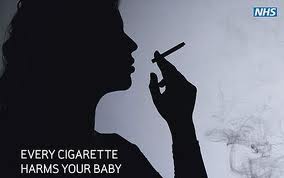(Reuters Health) - Kids whose moms smoked while pregnant were more likely to end up on medications such as antidepressants, stimulants and drugs for addiction in a new study from Finland that hints at maternal smoking's effect on a baby's developing brain.
While the findings don't prove that cigarette smoking during pregnancy causes changes in kids' brains or behavior, they offer one more piece of evidence that should encourage women not to light up while pregnant, the researchers wrote in the American Journal of Epidemiology.
The new study is "entirely consistent with a large and still-growing research literature on the effects of prenatal and secondhand smoke exposure on the mental health of children," said Dr. Michael Weitzman, who studies that topic at New York University Medical Center and was not involved in the new study.
"I found it very interesting and very important," Weitzman said.
The research, he added, is the first he knows of that looks specifically at use of psychiatric medications in kids whose moms had smoked.
That's important, the authors noted, because tracking medication prescriptions may pick up on more mild conditions than studies that only include kids who are hospitalized for mental illness, for example.
Mikael Ekblad of Turku University Hospital and colleagues used Finnish data for 175,000 kids born in the country between 1987 and 1989.
At that time, midwives had asked all new mothers if they smoked during pregnancy.
The researchers then matched those birth records to a nationwide database of prescription drugs covered by insurance between 1994 and 2007 -- when the kids were between five and 20 years old.
One in 11 kids was prescribed a psychiatric medication at some point during that period, including anti-anxiety drugs, antipsychotics, antidepressants, stimulants and drugs for addiction.
Of kids and teens whose moms didn't smoke during pregnancy, 8 percent were on at least one of those drugs during the study period.
That compared to 11 percent of those whose moms smoked less than 10 cigarettes a day, and close to 14 percent whose moms had lit up more than 10 times per day.
The link remained when researchers left out babies who were born early or very small -- other factors that could affect future mental health.
It also stuck when they looked at each class of drugs on its own, and was strongest for stimulant drugs that target attention problems and hyperactivity and drugs for addiction.
Weitzman said the finding that depression medications were also linked to smoking was a "new and intriguing" one that would have to be examined in future research.
The study did have its limitations. For example, Ekblad and colleagues couldn't take into account whether moms had been on psychotropic medications themselves, or if they used alcohol or illicit drugs during pregnancy.
They also didn't know which dads smoked while kids were in the womb -- or if either moms or dads smoked after the babies were born, when their brains would have been still developing.
Weitzman said that it's "so hard to disentangle" the effects of parents' smoking during pregnancy from smoking when kids are growing up.
After all, he said, kids who are exposed to one kind of secondhand smoke are often exposed to both.
"Very few women smoke just during pregnancy," he told Reuters Health.
Exactly how smoking could change a growing baby or child's brain is unclear.
The researchers said it's possible that nicotine could affect brain development, or that access to oxygen during pregnancy might be reduced when moms smoke.
Either way, "At the very least, parents need to be educated that they might be doing brain damage to their children" if they smoke during key times in development, Weitzman said.
He added that doctors should keep this in mind and look out for mental health problems in their young patients.
SOURCE: bit.ly/odEWLe American Journal of Epidemiology

